Over the last few years, the retro floodgates have opened – and it’s honestly never been a better time to be an elderly gamer. If you want to relive the glories of your childhood there are now numerous options from a wide variety of companies – but this latest contender might be one of the most exciting yet.
I’ve seen a few Game Boy-alikes in my time. Just one year ago I reviewed the Super Pocket, a super cheap and simple offering from the team behind Evercade. The gold standard for the form remains the Analogue Pocket, a luxury and feature-filled device that keeps getting better with updates. The Chromatic slots into this pantheon on the higher end, rivalling the Pocket – though its approach is markedly different in important ways.
First thing’s first: this is a Game Boy. If it looks like a duck and quacks like a duck… well, this is that. It’s got that same familiar form factor – B and A buttons, Select and Start, a D-Pad, power switch, volume rocker… everything is where you’ll remember it. The form factor is alarmingly close to the Game Boy Color, though divergent enough to be ‘Legally Distinct.’ So, if we’re getting more specific, this is a Game Boy Color.
That definition brings interesting advantages, drawbacks, and considerations that we’ll dig into a little later in this article. But for now, let me start out with some broadly declarative praise – this is one of the nicest pieces of handheld gaming hardware I’ve ever used.
A lot of this is down to the shell – rather than plastic, as pretty much every other device like this uses, the Chromatic is crafted from magnesium alloy. This is still lightweight, but it feels bloody luxe. It’s a weirdly specific thing to zone in on, but when I popped off the battery compartment for the first time (this eschews the now-common rechargeable battery for three traditional Double-As, though a rechargeable battery pack is also available) I was shocked at how solid and firm the compartment feels, and how definitively it clicks into place.
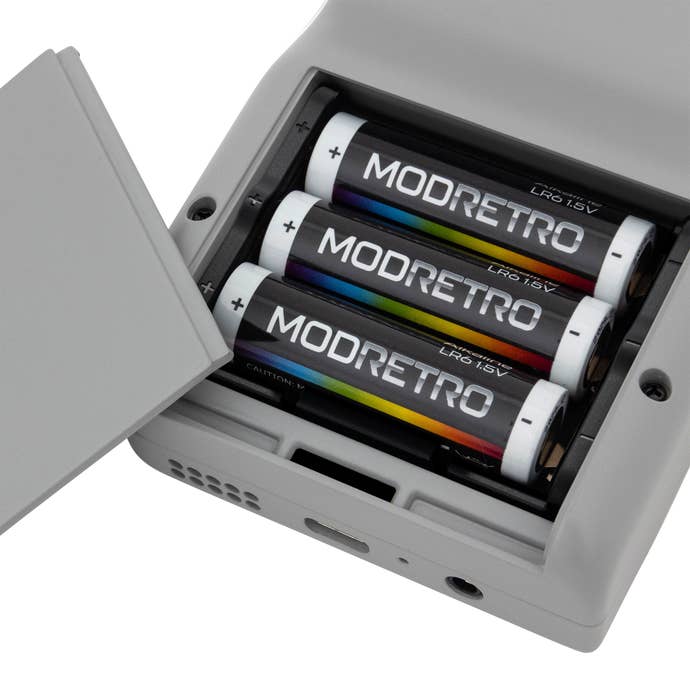
It just feels like quality. I’m envisioning that American Psycho business card scene with these damn things. Someone flashes some Abernic Android handheld. Then it’s an Analogue Pocket; “The operating system supports something called OpenFPGA.” Then the Chromatic gets slammed on the table. “Metal”. The tasteful weight of it. Oh my god, it even has an IR port…
The folks behind Chromatic claim that it’s also very, very sturdy – their website pictures a car driving over the device while it still happily runs Tetris. I don’t have the stones to test this out, but holding the device in my hands and feeling the natural heft of it, I believe them.
The build quality is good. The buttons are lovely; the D-Pad having that right amount of squishiness. The speakers are surprisingly loud, and output from the 3.5mm headphone jack is clear. Basically, it’s a nice device. Its IPS backlit LCD has a crisp, high clarity. It’s not the time of year for testing sunlight – but playing with artificial light I’m pretty sure it’ll fare quite well under nature’s glare. I like it a great deal.
But as ever, the real test for hardware like this comes in terms of the games you’ll be playing – and this is where the choices made for the Chromatic get interesting.
It is, frankly, impossible to talk about the Chromatic without talking about the Analogue Pocket. At this stage I must drop the facade and address them both, for they are such tightly-intertwined rivals that they have to be considered as a duo.
As I said before, this is a Game Boy Color. I mean it: those are the games this plays. It takes the original cartridges, and even has the matching Infrared and Link Cable ports. Using those functions, it can talk to original Game Boys – or Analogue Pockets, for that matter.
When we sit the Chromatic side-by-side with Analogue, there’s no Game Boy Advance support, no wider-reaching operating system with implied support for other types of software, and certainly no physical adapters to slot in things like Game Gear carts. This is a Game Boy Color. It takes those old cartridges and plays ‘em. With FPGA technology, it plays ‘em damn good, with near-100% accuracy to original hardware.
There’s a sense of deliberate simplicity here. The Chromatic does less, but it aims to be more impressive in what it offers for that less. For instance, a USB-C port on the bottom can be used not only to charge an optional battery pack, but also to directly video out the screen of the Chromatic to a PC. If you’re a streamer who wants to play Game Boy games without emulation, on a device that has the original machine’s form and function – the Chromatic is now the machine for you.
There’s also just something to be said for slamming a cart in, flicking the power switch… and away you go. This obviously won’t be for everybody. For a start, not everybody has libraries of games. Some want to dump a bunch of ROMs from their original carts (I assume – don’t tell me how you otherwise obtain them, I don’t want to know) and load them from an SD card, getting rid of the need to carry around and swap carts. But there’s something in the Chromatic that really channels the original experience, and I like that. Plus, if you really want to, the Chromatic does run an Everdrive without issue.
Combine that OG experience with that beautiful metal casing and this feels like a toy, sure – but it feels like a toy for grown ups.
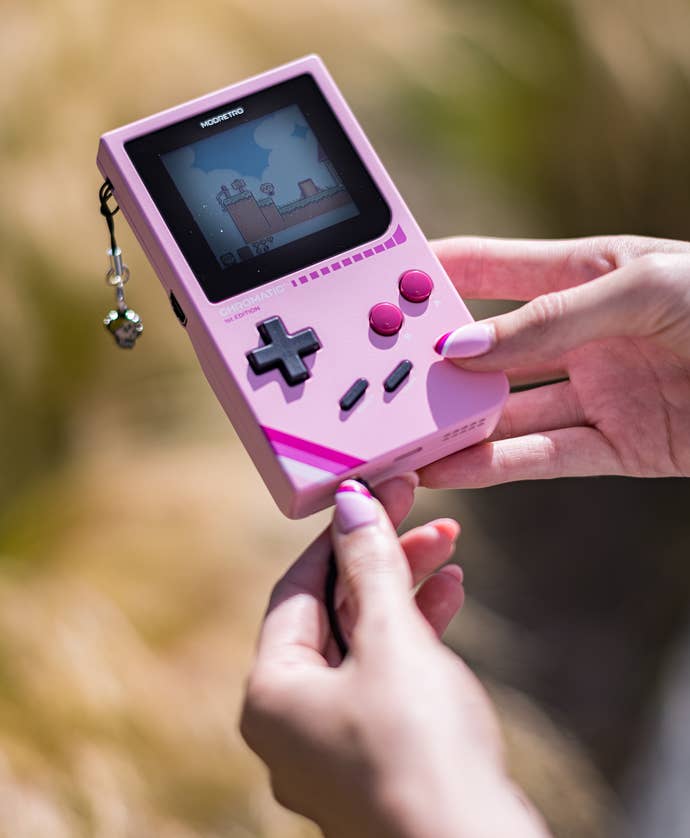
It’s got a grown-up price tag too. The Chromatic runs $200 (£161 for Brits, currently) – an unarguably premium product. Younger players less familiar with this hardware and without a cart collection are really not the target of this machine. In that context, and coupled with the super high quality, the price makes sense.
The $200 price puts the Chromatic just $20 cheaper than the Analogue Pocket. This is where the situation becomes a bit pricklier – that machine has more compatibility, runs just as well, and is only a smidge more expensive. However, Analogue’s offering lacks the gorgeous case, and some might find all the bells and whistles a bit of a distraction. The Analogue offers a bigger screen, but as a result comes in a much larger overall footprint – so it’s less pocket friendly.
Swings and roundabouts, as the saying goes. Ultimately, the feature and price comparison between the Analogue and Chromatic leads to what isn’t exactly an easy sell – but I can totally see the market for both devices.
Plus, the Chromatic has an ace up its sleeve. This is something that could completely flip the script around this machine in the years to come. The X-Factor is thus: Chromatic doesn’t just play Game Boy and Game Boy Color cartridges; it also plays Chromatic Cartridges.
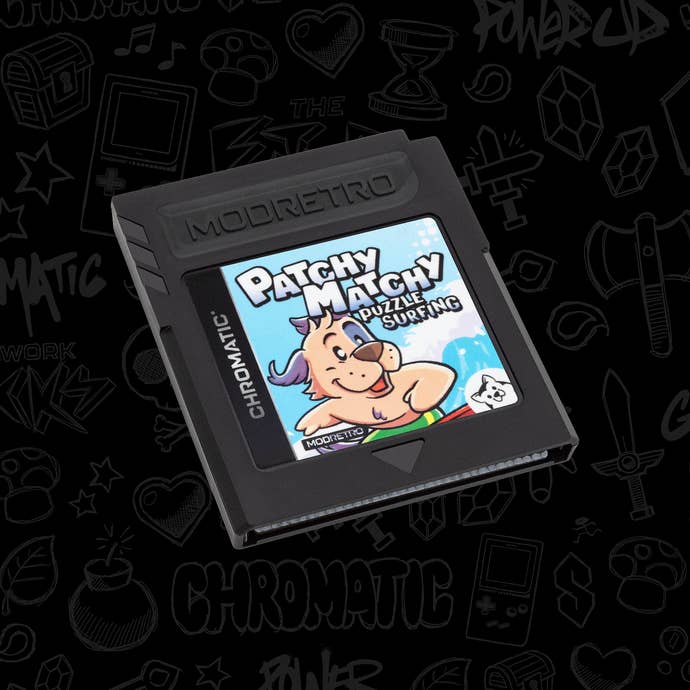
To be clear, these Chromatic Cartridges are just ‘new’ Game Boy Color carts, really. The Chromatic ships with an all-new port of Tetris created specifically for the machine, and if you take that cart and drop it into a GBC, Analogue Pocket, or any other similar device, it’ll run. But the curiosity here is the promise that ModRetro will release more ‘new’ games, licensed reprints of old games, or all-new ports on these carts, is intriguing.
Readily available modern cartridges back up the concept of the machine as a more simple, traditional, physical media-driven device. We’ve seen this sort of thing rolled out with great success by Evercade, which now has a pretty impressive line-up of classics available across many carts. Could the same happen here? I hope so.
Ultimately, I think this is a lovely device. The price might be difficult for some to swallow – but I think if you’re the sort of person who’d go in for this sort of thing, you’re likely already primed and ready to pay a premium. It’s one of the nicest of these devices I’ve used – and it’s one I’ll continue to use, which is saying something given how many I have access to.
The Chromatic is available to order now – and it could be a perfect Christmas gift for the ageing hardcore gamer in your life. Or, indeed, for yourself – if you’re also edging ever closer to picking up your gaming pension.
fbq('init', '1749355691872662');
fbq('track', 'PageView'); window.facebookPixelsDone = true;
window.dispatchEvent(new Event('BrockmanFacebookPixelsEnabled')); }
window.addEventListener('BrockmanTargetingCookiesAllowed', appendFacebookPixels);
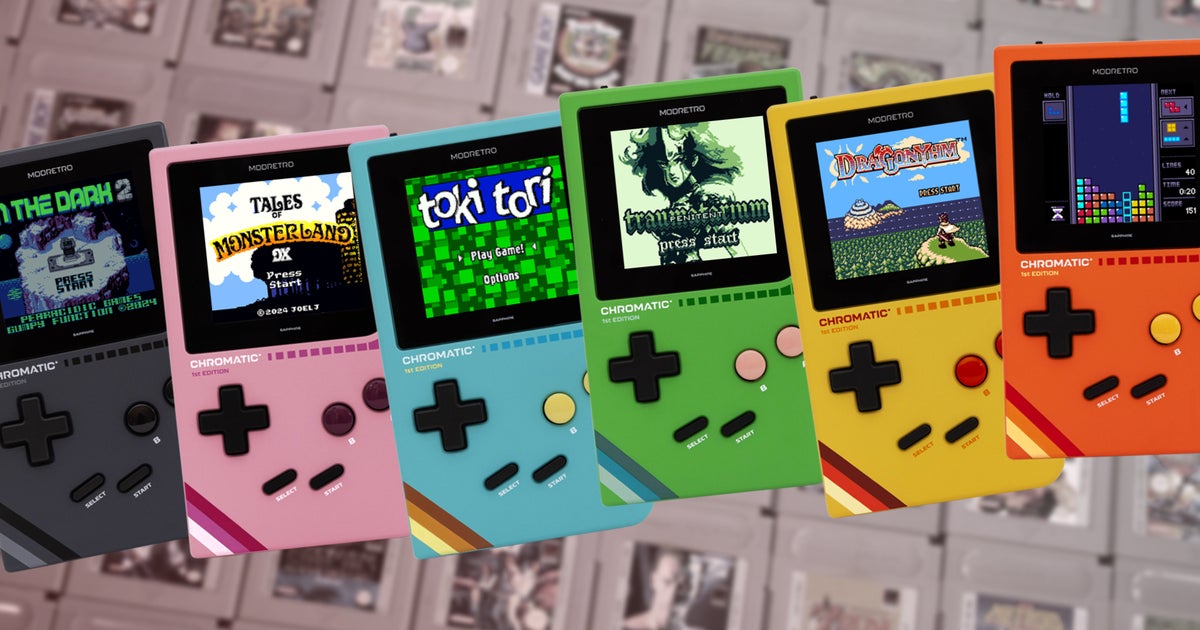







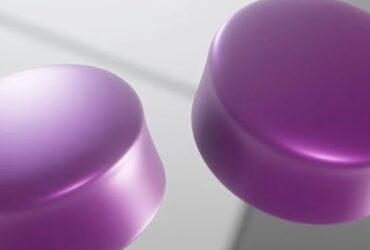


Leave a Reply